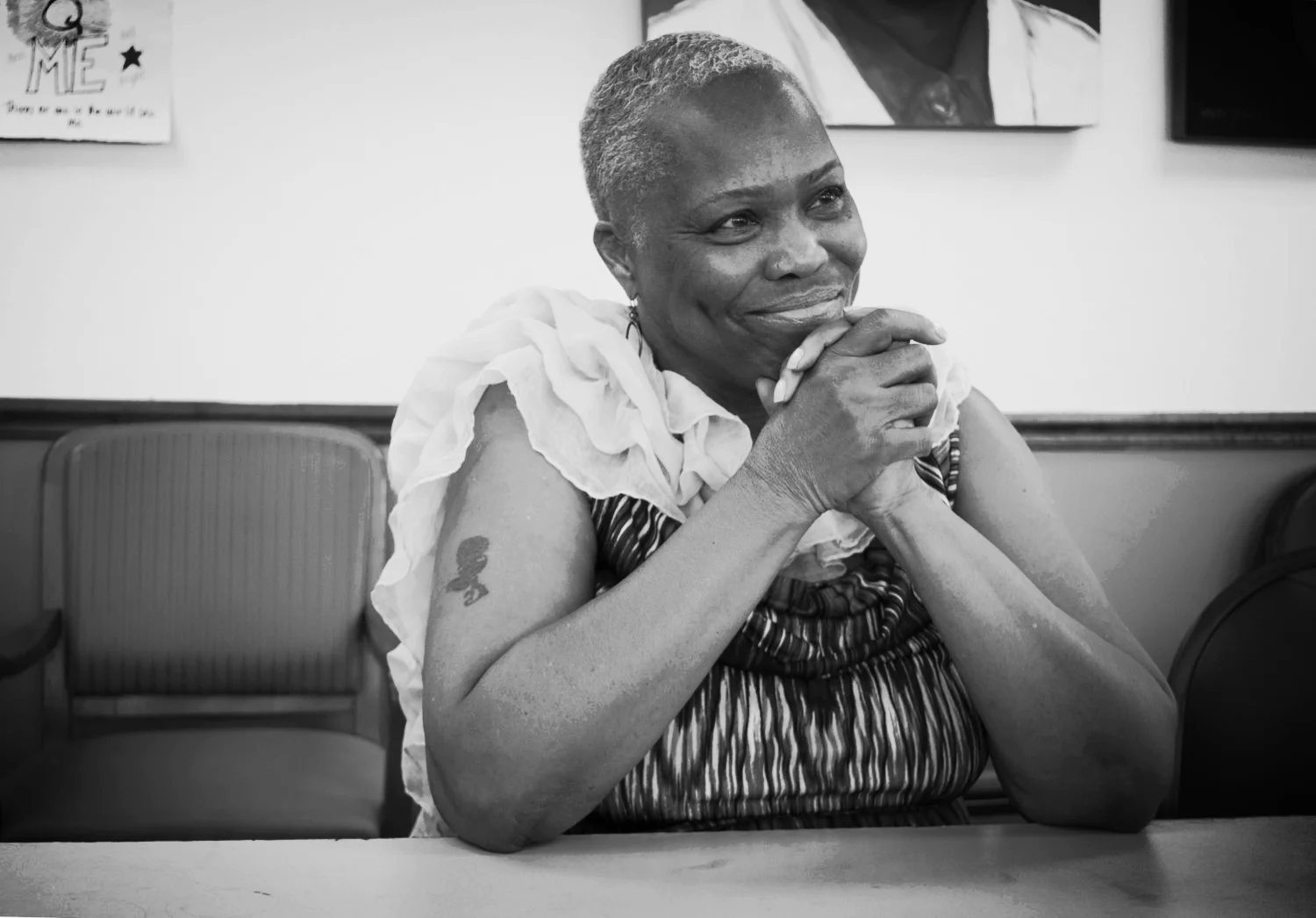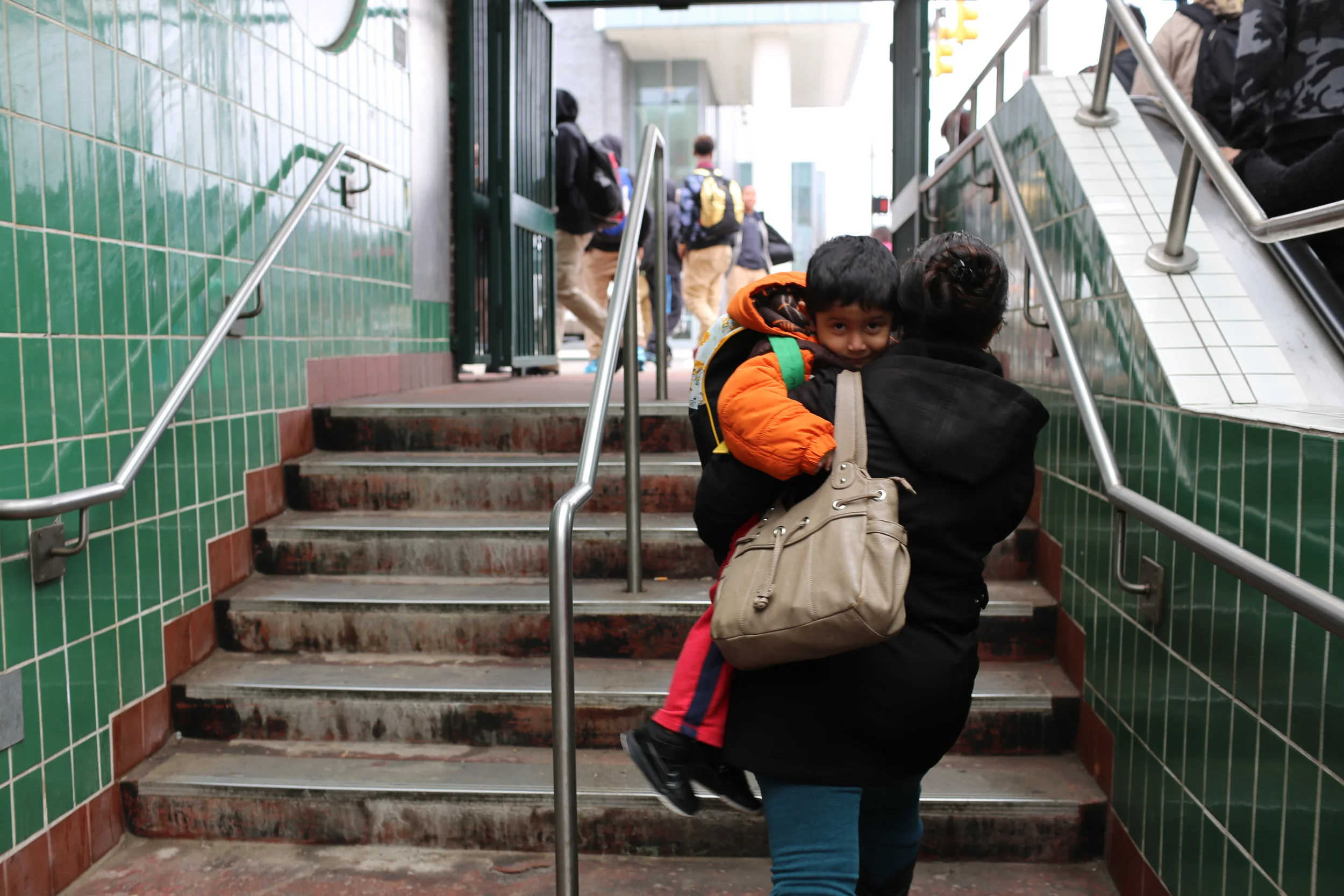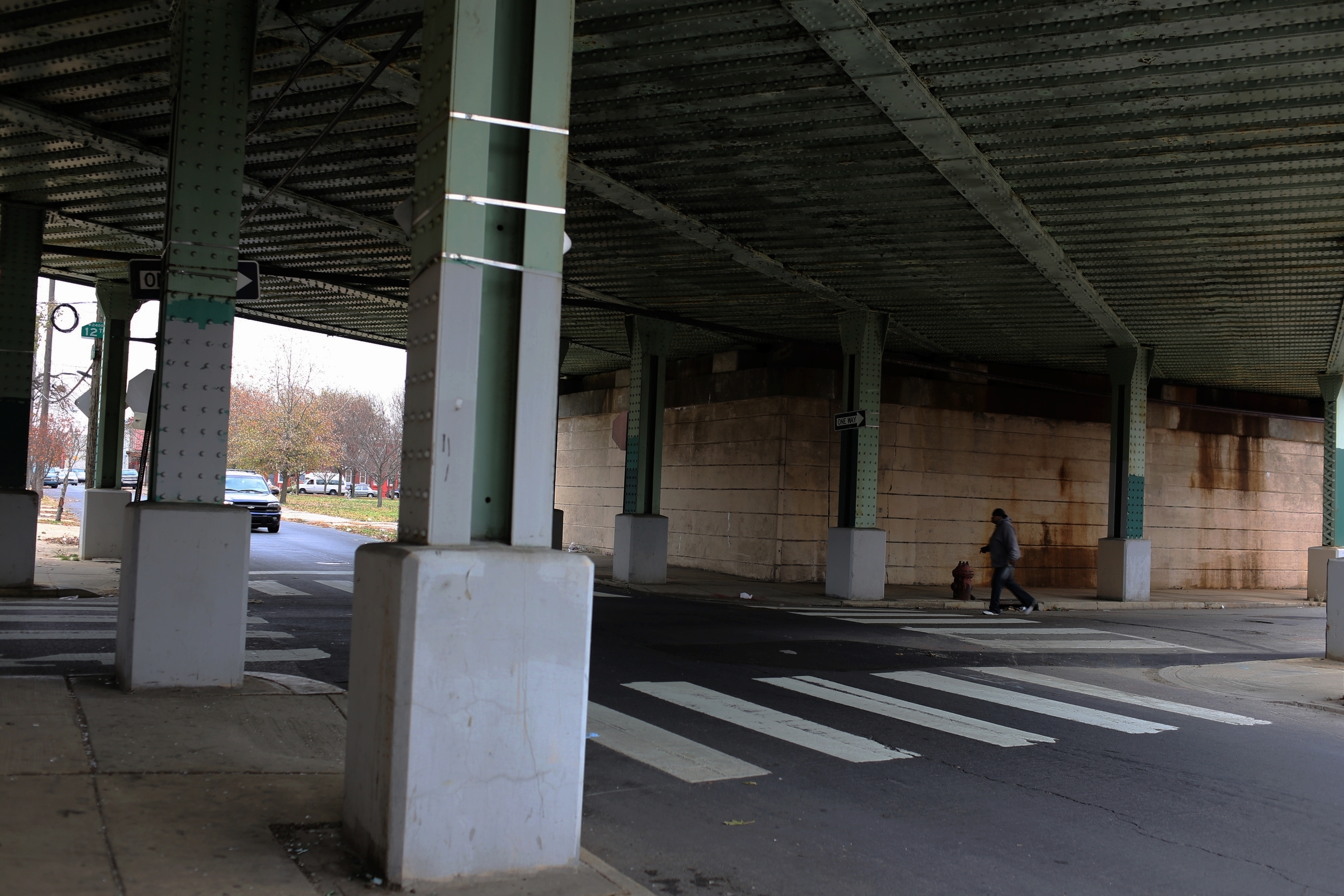








Darnetta Green-Mason
West Philadelphia
Darnetta Green-Mason lost her son Erik to gun violence in 2007, a loss that affects her every day, and that has inspired her to help others in her community heal.
Darnetta is a leader in her community - a block captain, and the person others go to for advice. She works regularly with Mothers in Charge, an organization that supports individuals who have lost loved ones through advocacy, counseling, and community-building in Philly and beyond. Darnetta says shootings not only kill people, but tear apart families and divide community members. She hopes in the future that young men in her neighborhood feel like they matter enough to find a job, get an education, and feel accountable to their families and communities.
Victims and Survivors
“You are not as you used to be. You don't want to be in crowded areas, and you don't really want to ride public transportation, and your social life is limited to the square block in your particular neighborhood. And we never knew a whole lot about [PTSD], because that was something the military dealt with, you know? But I do believe that there are a lot of people today that are suffering with that … from being victims of gun violence.
“A young lady that belongs to my church and also is a friend of mine was shot by her neighbor eight times at 45th and Spruce, and he in turn killed himself. Over neighbor stuff, you know? … You kill yourself, you actually thought you had killed this person, because you shot her eight times. But she survived, and she is progressing well, thank God. But this girl was on the way to church Sunday morning. What makes you that angry?”
Bring a Gun
“The pressure that seems to be out there, the lifestyle, is that everything is settled in such a violent altercation. It’s no longer … if you get into an argument, you argue, you walk away … Or if it leads to physical confrontation, you walk away. It’s always one or the other that seems to come back and settle with a gun … [I can] make a phone call and say, ‘Bring a gun.’ And somebody would bring it … Why are people so ready to see you cause harm to someone else? Why is it that no one can say, ‘Wait a minute. Why can’t y’all talk about it?’, not, ‘Okay, here I come, where are you?’”
Community Effects
“One incident in particular really affected our community as a whole, when three merchants in a store were murdered … A husband, his sister, and his wife, [a] close Dominican family. [They were] close to the community, everybody was close to them … And it had people looking at each other because no one knew what had happened.
"'Was that somebody from the community?' and 'Who would do this?' Rumors had started spreading [though] we came to find out it was someone from outside the neighborhood … People are still affected to this day by the murder of those three people … It causes a lot of dissension in communities. Not just this family, and that family. Because communities are just what that word says - there’s a connection. Most families in most communities have spent generations within that same community.”
Making a Difference
“You can get folks to come out for a vigil, and no one will really have any input about anything … At the schools, to try to get someone to come out for a parents’ conference - very few. I don’t think that people believe that what they have to offer is considered, or that anybody really wants to know what they feel.
“Sometimes you feel defeated, but then again you feel that somewhere, there’s going to be a difference made. There’s going to be a difference made, there has to be. And not all of the young people that are in the community, even if they’re standing on a corner, they’re not out there to hurt anyone. It’s just that they have to realize that where they are and what they’re doing brings a greater chance of a problem, as opposed to if you were doing something constructive.”
- - - - - - - - - - - - - - - - - - - - - - - - - - - - - - - - - - - - - - - -
Interview by Dan Kurland and Tia Yang | Portraits by Tia Yang | April 2015